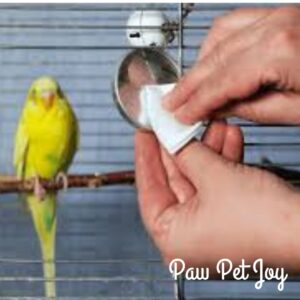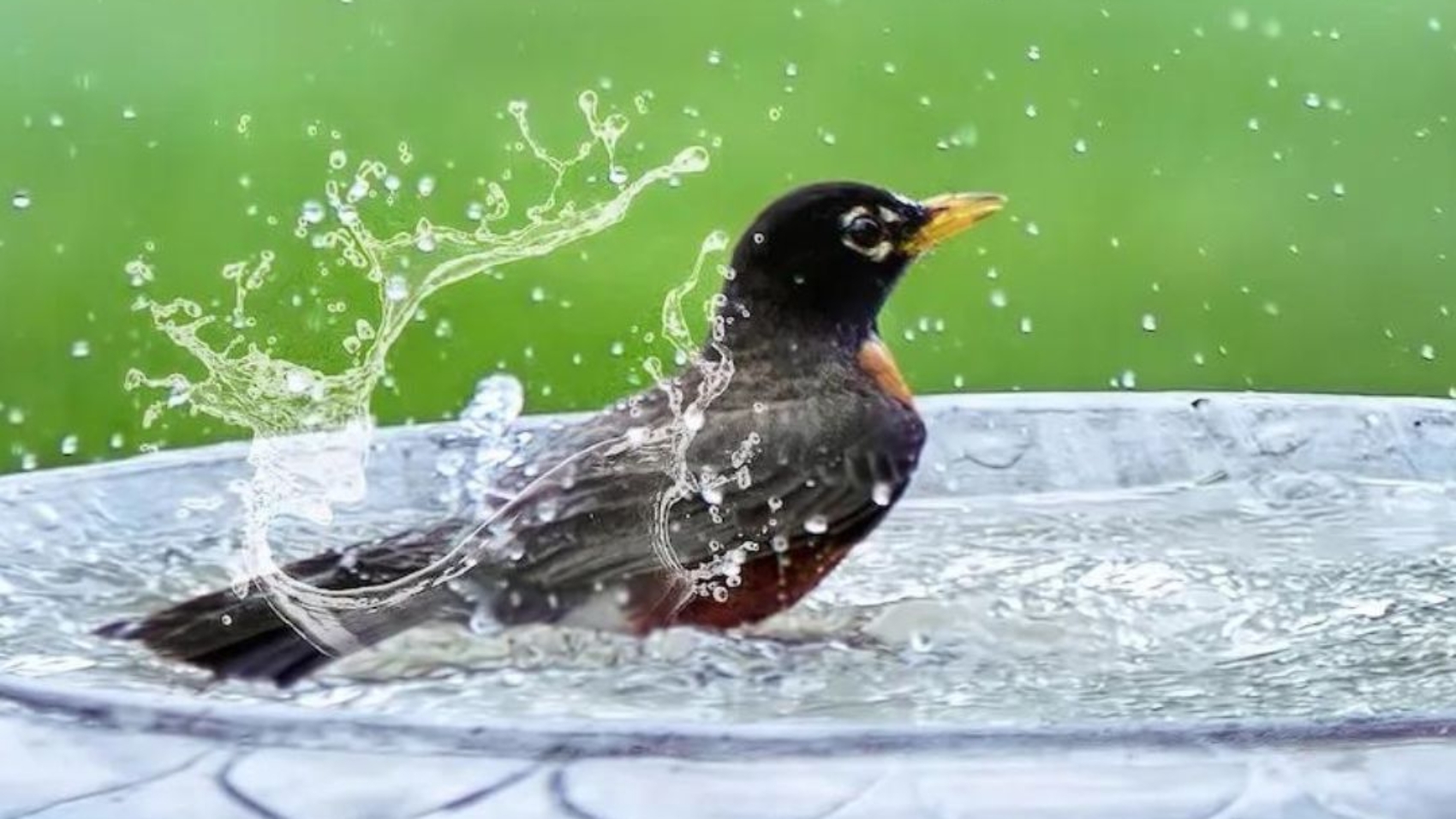Bird Care Daily Routine cover everything from feeding and grooming to social interaction and mental stimulation. Can create a nurturing environment for pets.
Introduction to Bird Care
Birds are intelligent, social, and active animals that thrive in an environment that meets their physical and psychological needs Bird Care Daily Routine A well-structured daily routine is crucial for maintaining their health and well-being. Whether you have a small parakeet or a large parrot, understanding the basics of bird care can make a significant difference in their quality of life. Taking care of a bird is a rewarding experience, but it also requires a consistent daily routine to ensure the health and happiness of our pets. From feeding and cleaning to providing mental stimulation and social interaction, there are several key aspects to consider when caring for a bird throughout the day Bird Care Daily Routine
Birds are highly intelligent and social creatures that thrive on routine and structure. Establishing a daily routine for your bird not only helps to maintain their physical health but also contributes to their mental well-being and overall happiness. By following a structured schedule that includes feeding, cleaning, exercise, and social interaction, you can provide a stable and enriching environment for your bird to flourish in. In this article, we will delve into the specifics of a bird care daily routine, offering practical advice and helpful insights to help you create a nurturing and rewarding experience for both you and your pet..
- Consistency is Key: Establish a daily routine to provide stability and security for your bird.
- Balanced Diet: Ensure your bird receives a varied and nutritious diet to support overall health.
- Mental Stimulation: Regularly rotate toys and introduce new activities to keep your bird engaged.
- Social Interaction: Spend quality time with your bird every day to foster a strong bond and prevent loneliness.
- Health Monitoring: Keep an eye on your bird’s health and seek veterinary advice when needed.
Bird care daily routine for Morning: Setting the Tone for the Day
Greeting and Observation Bird Care Daily Routine
Start your day by greeting your bird and observing its condition. Check for any signs of illness, such as unusual behavior, changes in droppings, or physical abnormalities.
Ensure the cage is clean and that the bird appears alert and active
. Feeding and Watering Bird Care Daily Routine
Provide fresh food and water every morning. Birds require a balanced diet consisting of high-quality pellets, fresh fruits, vegetables, and occasional seeds.
Change the water daily to prevent bacterial growth and ensure hydration.

Cage Maintenance Bird Care Daily Routine
Clean the cage thoroughly. Remove any uneaten food, droppings, and debris. Replace the cage liner to maintain a hygienic environment.
Ensure all toys and perches are clean and in good condition.
Environmental Enrichment Bird Care Daily Routine
Rotate toys and introduce new items regularly to keep your bird mentally stimulated.
Provide materials for foraging, such as paper or safe branches, to mimic natural behaviors.

Bird care daily routine for Midday Activities
Social Interaction
Spend time interacting with your bird. Birds are social animals and need regular human interaction to stay happy and healthy.
Engage in activities like talking, singing, or playing games to strengthen your bond.

out-of-Cage Time
Allow your bird to spend time outside of its cage daily. Ensure the environment is safe and free from hazards such as open windows, toxic plants, or other pets.
Supervised flight time can provide essential exercise and prevent boredom.

Training and Enrichment
Training sessions can be a fun way to engage your bird mentally and physically. Teach simple tricks or commands using positive reinforcement techniques.
Puzzle toys and foraging activities can also provide mental stimulation and prevent destructive behaviors.

Bird care daily routine for Evening Routine
Final Feeding and Hydration
Offer a small meal or a treat in the evening to keep your bird satisfied through the night. Ensure fresh water is available.
Monitor food intake to prevent overeating and obesity.
Health Check
Perform a brief health check to ensure your bird has had a good day. Look for any signs of stress or illness.
Address any issues promptly to prevent potential health problems
Bird care daily routine

.Cage Preparation for Night
Clean the cage again if necessary, and make sure it is comfortable for the night. Adjust perches and toys to create a restful environment.
Cover the cage with a breathable cloth to simulate nighttime and help your bird feel secure.
Quiet Time
Reduce noise and dim the lights to help your bird wind down. Birds need a quiet and dark environment to sleep well.
Ensure your bird gets at least 10-12 hours of uninterrupted sleep.
Bird care daily routine for Weekly and Monthly Care Tasks
Bathing and Grooming
Bird Care Daily Routine Depending on the species, birds may require regular bathing. Provide a shallow dish of water or use a misting spray.
Regularly trim your bird’s nails and, if necessary, its beak and feathers. Consult a vet or a professional groomer for proper techniques. One important aspect of caring for your bird is ensuring that they stay clean and well-groomed. Bathing and grooming are essential parts of a bird’s daily routine to help maintain their health and overall well-being.
Bathing is crucial for removing dirt, dust, and excess oils from your bird’s feathers. It also helps to prevent dry, itchy skin and reduce the risk of feather mites and other parasites. Depending on the species of bird you have, their bathing preferences may vary. Some birds enjoy splashing around in a shallow dish of water, while others prefer a gentle misting with a spray bottle. It’s important to observe your bird’s behavior and preferences to determine the best bathing method for them.
Grooming is another important aspect of bird care that ensures your pets looks and feels their best. Regularly check and trim your bird’s nails to prevent them from becoming overgrown and causing discomfort or injury. You can use a small pair of clippers specifically designed for bird nails or ask your veterinarian for assistance if you’re unsure how to safely trim them.
Feather care is also crucial for your bird’s overall health. Regularly preening your bird’s feathers helps to remove dirt and debris, distribute natural oils, and maintain their insulation properties. If you notice any bald patches, broken feathers, or signs of feather plucking, it may be a sign of an underlying health issue or behavioral problem that requires attention.
In addition to bathing and grooming, it’s important to provide your bird with a clean and comfortable living environment. Regularly clean and disinfect their cage, perches, toys, and food and water dishes to prevent the buildup of bacteria and other harmful pathogens. Providing fresh water daily and offering a balanced diet rich in vitamins and minerals will help to keep your bird healthy and happy.
Lastly, Bird Care Daily Routine spend quality time interacting with your bird to ensure they receive the mental and emotional stimulation they need. Birds are social creatures that thrive on companionship and play. Engage in activities that stimulate your bird’s natural behaviors, such as foraging, climbing, and vocalizing. Building a strong bond with your bird through positive reinforcement and routine training sessions can provide mental enrichment and strengthen your relationship.
Overall Bird Care Daily Routine, establishing a consistent bathing and grooming routine, along with providing a clean and stimulating environment, is essential for maintaining your bird’s health and happiness. By observing your bird’s behavior and needs, you can tailor their care to keep them looking and feeling their best. Remember, your bird relies on you for their well-being, so prioritize their care and make it a part of your daily routine.

Veterinary Check-Ups
Bird Care Daily Routine Schedule regular veterinary visits to monitor your bird’s health. Annual check-ups can help catch potential issues early. Keep vaccinations and parasite treatments up to date.
Just like any other pet, birds require regular check-ups to ensure that they are healthy and happy. Veterinary check-ups are an essential part of caring for your pets as they can help to detect any potential health issues early on and prevent them from becoming more serious.
It is recommended that you take your bird for a check-up at least once a year, but some birds may require more frequent visits depending on their age, species, and health status. During the check-up, the vet will examine your bird from head to toe, check their weight, listen to their heart and lungs, and look for any signs of illness or injury.
In addition to the physical exam, the vet may also recommend blood tests, x-rays, or other diagnostic tests to further evaluate your bird’s health. These tests can help to detect underlying health issues that may not be apparent during a routine exam Bird Care Daily Routine
.
Regular veterinary check-ups are also an opportunity for you to ask any questions you may have about your bird’s care. The vet can provide you with valuable information on topics such as nutrition, housing, and behavior, and offer tips on how to keep your bird healthy and happy.
In addition to annual check-ups, it is important to be vigilant for any signs of illness in your bird and seek veterinary care if you notice any changes in their behavior or appearance. Some common signs of illness in birds include lethargy, loss of appetite, changes in droppings, sneezing, wheezing, or discharge from the eyes or nose.
If you notice any of these signs or if you are concerned about your bird’s health for any reason, do not hesitate to contact your avian vet right away. Birds are experts at hiding signs of illness, so it is important to act quickly if you suspect that something may be wrong.
In addition to regular veterinary check-ups, there are several other things you can do to help keep your bird healthy. Providing a clean and spacious cage, offering a balanced diet, and ensuring that your bird gets plenty of exercise and mental stimulation are all important components of bird care.
It is also essential to monitor your bird’s weight and behavior on a daily basis and to keep an eye out for any changes that could indicate a health issue. By paying attention to your bird’s needs and providing them with the care they require, you can help ensure that they live a long and healthy life.
Regular veterinary check-ups are an essential part of caring for your bird and can help to ensure that they stay healthy and happy. By working closely with your avian vet and being proactive about your bird’s health, you can provide them with the best possible care and enjoy many years of companionship with your pets.
Deep Cleaning
Bird Care Daily Routine Perform a deep cleaning of the cage and surrounding area weekly. Disinfect the cage, perches, and toys to prevent bacterial buildup. Replace any worn or damaged items to maintain a safe environment.
Deep cleaning your bird’s living area is an important part of their daily care routine. Just like us, birds need a clean and healthy environment to thrive in. This means not only cleaning their cages or aviaries but also taking the time to sanitize and disinfect all the surfaces and accessories within their living space.
Start by removing your bird from their cage and placing them in a safe and secure area. This will prevent them from getting stressed or harmed while you clean. Remove all the food and water dishes, toys, perches, and any other accessories from the cage. Shake out any bedding or liners and toss them in the wash or replace them with fresh ones.
Next, it’s time to thoroughly clean the cage. Use a bird-safe cleaner or a mixture of water and vinegar to scrub down all the surfaces inside and outside of the cage. Pay special attention to any areas where droppings or food may have built up. Rinse everything well and allow it to dry completely before putting any accessories back in.
While the cage is drying, take the time to clean and sanitize all the toys, perches, and dishes. Use hot, soapy water to scrub them clean, and then rinse well. For an extra layer of protection, you can also disinfect them using a bird-safe disinfectant. Make sure to dry everything thoroughly before placing them back in the cage.
Finally, don’t forget to sweep or vacuum the area around the cage to clean up any feathers, seeds, or droppings that may have fallen outside of the cage. This will help prevent the spread of any germs or bacteria that could harm your Bird Care Daily Routine
Deep cleaning your bird’s living space should be done at least once a week, but depending on the size of your bird and the condition of their cage, you may need to do it more frequently. It’s important to stay on top of the cleaning to ensure that your bird stays healthy and happy.
In addition to deep cleaning, it’s also a good idea to spot clean your bird’s living area daily. This means removing any droppings or uneaten food from the cage, wiping down any dirty surfaces, and checking for any signs of illness or injury in your bird.
By incorporating deep cleaning into your bird care daily routine, you are providing your feathered friend with a safe and healthy environment to live in. Remember that a clean living space not only benefits your bird’s physical health but also their mental well-being. So roll up your sleeves, grab your cleaning supplies, and give your bird’s home the deep clean it deserves!
Caring for your Bird Care Daily Routine
Next, it’s time to thoroughly clean the cage. Use a bird-safe cleaner or a mixture of water and vinegar to scrub down all the surfaces inside and outside of the cage. Pay special attention to any areas where droppings or food may have built up. Rinse everything well and allow it to dry completely before putting any accessories back in.
While the cage is drying, take the time to clean and sanitize all the toys, perches, and dishes. Use hot, soapy water to scrub them clean, and then rinse well. For an extra layer of protection, you can also disinfect them using a bird-safe disinfectant. Make sure to dry everything thoroughly before placing them back in the cage.
Finally, don’t forget to sweep or vacuum the area around the cage to clean up any feathers, seeds, or droppings that may have fallen outside of the cage. This will help prevent the spread of any germs or bacteria that could harm your Bird Care Daily Routine
Deep cleaning your bird’s living space should be done at least once a week, but depending on the size of your bird and the condition of their cage, you may need to do it more frequently. It’s important to stay on top of the cleaning to ensure that your bird stays healthy and happy.
In addition to deep cleaning, it’s also a good idea to spot clean your bird’s living area daily. This means removing any droppings or uneaten food from the cage, wiping down any dirty surfaces, and checking for any signs of illness or injury in your Bird Care Daily Routine
.By incorporating deep cleaning into your bird care daily routine, you are providing your feathered friend with a safe and healthy environment to live in. Remember that a clean living space not only benefits your bird’s physical health but also their mental well-being. So roll up your sleeves, grab your cleaning supplies, and give your bird’s home the deep clean it deserves!
Caring for your bird daily may seem daunting at first, but with a consistent routine and some basic knowledge, you can provide the best care for your pet. From feeding and cleaning to playtime and social interaction, each part of their day is important to their overall well-being. By following the tips and guidelines outlined in this article, you can ensure that your bird is happy, healthy, and thriving in your home. Remember, a little bit of effort each day goes a long way in providing a loving and enriching environment for your beloved bird companion.
may seem daunting at first, but with a consistent routine and some basic knowledge, you can provide the best care for your pet. From feeding and cleaning to playtime and social interaction, each part of their day is important to their overall well-being. By following the tips and guidelines outlined in this article, you can ensure that your bird is happy, healthy, and thriving in your home. Remember, a little bit of effort each day goes a long way in providing a loving and enriching environment for your beloved bird companion.

Bird care daily routine3How often should I clean my bird’s cage?
Clean the cage daily, with a thorough deep cleaning once a week. Regular maintenance prevents the buildup of harmful bacteria and ensures a healthy environment.
What is the best diet for my bird?
A balanced diet for birds includes high-quality pellets, fresh fruits, vegetables, and occasional seeds. Consult your vet for species-specific dietary needs.
How much out-of-cage time does my bird need?
Birds should have at least 1-2 hours of supervised out-of-cage time daily. This allows for exercise, exploration, and social interaction.
How can I tell if my bird is sick?
Signs of illness in birds include changes in behavior, droppings, appetite, and physical appearance. Consult a vet if you notice any unusual symptoms.
What types of toys are safe for my bird?
Choose toys made from bird-safe materials such as untreated wood, stainless steel, and natural fibers. Avoid toys with small parts that could be swallowed.
Conclusion
A well-rounded daily routine is essential for the well-being of your pet bird. By focusing on key areas such as diet, hygiene, social interaction, and mental stimulation, you can create a nurturing environment that promotes a happy and healthy life for your feathered companion. Remember, every bird is unique, so adjust your care routine to meet the specific needs of your pet. With dedication and love, you can ensure your bird thrives and brings joy to your home for years to come.

[…] Low-Cost Pet Care Clinic, Pet ownership is a rewarding experience, but it also comes with responsibilities, including providing medical care. For many pet owners, the cost of veterinary services can be prohibitive. However, low-cost pet care clinics offer a viable solution for those looking to provide quality care for their pets without. […]